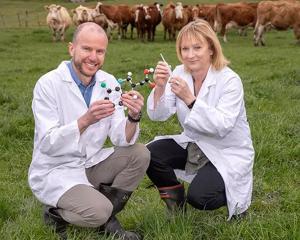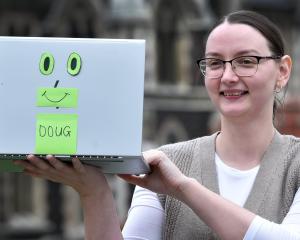
The Samoan-born University of Otago chemistry researcher had been going to the doctors for weeks, concerned her baby might be starving to death.
They prescribed medications which aimed to give him nutrients and make him want to eat, but he did not respond to them.
Then on her father’s advice, Ms Aloi visited a taulasea (a Samoan traditional healer), who simply squeezed the juice of a Samoan fruit into her son’s mouth, and within 24 hours he was back to feeding normally.
"I was sceptical at first. In never really cared much for the traditional medicine because you hear varying stories — it works for some people, but not others.
"As a scientist, I was utterly fascinated by the potent and immediate effects of this ‘primitive’ treatment, and it was in that moment I was inspired to provide scientific basis to the traditional uses of Samoan medicinal plants, and to determine their full therapeutic potential."
Ms Aloi is now in her final year of researching the plants as part of her PhD in chemistry at the University of Otago.
She said many of Samoa’s plants were used by locals to treat inflammation, wounds, anxiety, depression and other ailments.
Her research explores the chemical compounds responsible for the plants’ observed therapeutic effects, and aims to determine their potential to provide novel compounds for medicines.
It involves extraction, purification, identification and biological screening of compounds of interest.
Ms Aloi was due to complete her PhD in November and planned to then continue researching how the environment influences chemical compounds Samoan plants produce.
"The exact same species of plant ... can have different chemical compositions, based on the soil ... and the other plant species around.
"Three years is hardly enough time to investigate all of those plants."
Advertisement













